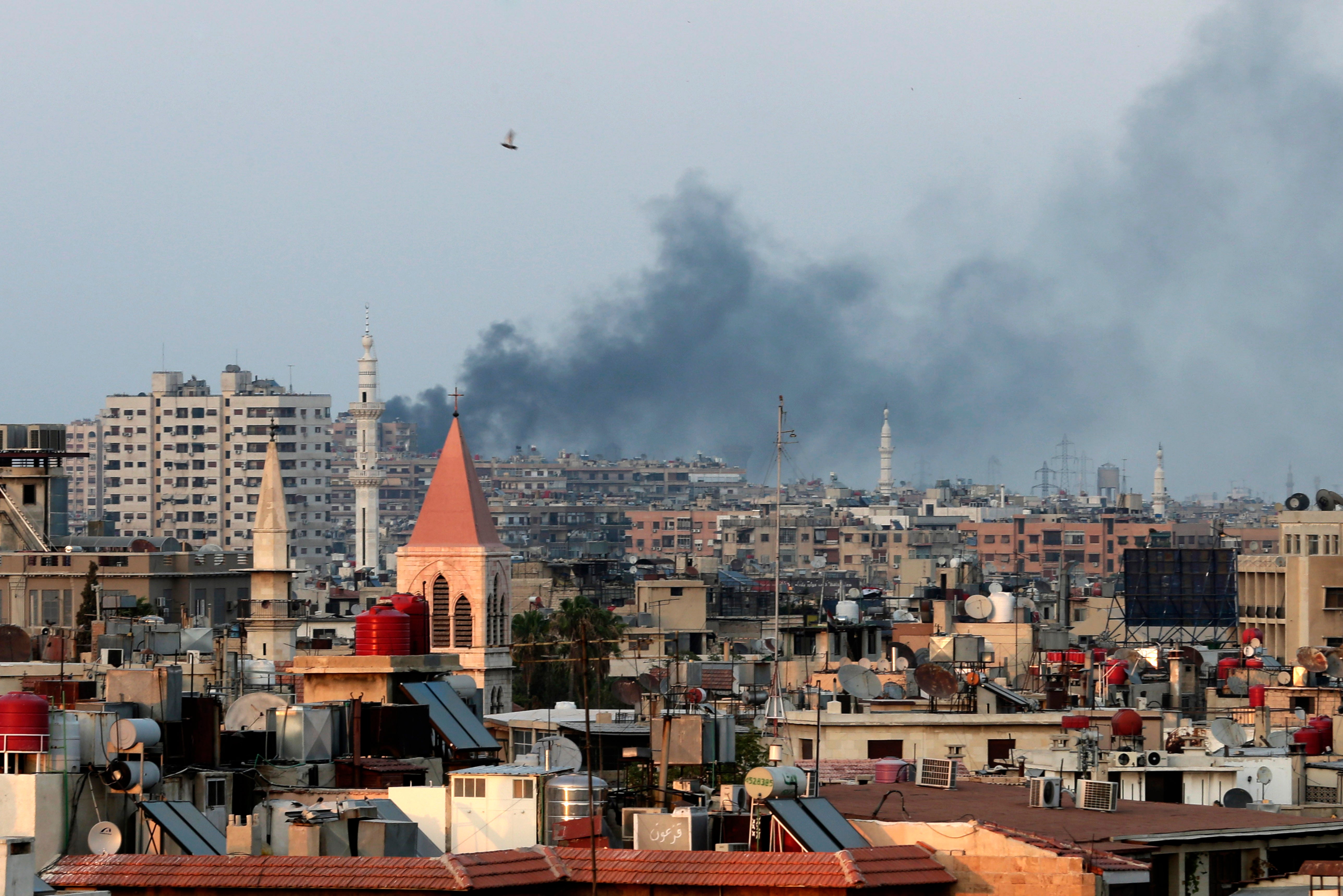Rights groups ask Germany to probe Syria chemical attacks
Human rights groups have filed a criminal complaint in Germany that asks prosecutors to investigate two chemical weapons attacks in Syria

Your support helps us to tell the story
From reproductive rights to climate change to Big Tech, The Independent is on the ground when the story is developing. Whether it's investigating the financials of Elon Musk's pro-Trump PAC or producing our latest documentary, 'The A Word', which shines a light on the American women fighting for reproductive rights, we know how important it is to parse out the facts from the messaging.
At such a critical moment in US history, we need reporters on the ground. Your donation allows us to keep sending journalists to speak to both sides of the story.
The Independent is trusted by Americans across the entire political spectrum. And unlike many other quality news outlets, we choose not to lock Americans out of our reporting and analysis with paywalls. We believe quality journalism should be available to everyone, paid for by those who can afford it.
Your support makes all the difference.Human rights groups said Tuesday they have filed a criminal complaint in Germany asking prosecutors to investigate two chemical weapons attacks in Syria that stand out among the worst atrocities in the country s long-running conflict.
Three groups, including Syrian human rights organizations and international legal campaigners, want Germany's attorney-general to probe the deadly sarin attacks on the Damascus suburb of Eastern Ghouta and the town of Khan Shaykhun that occurred in 2013 and 2017 respectively. They argue there is plentiful evidence to blame the Syrian government for the attacks, including President Bashar Assad.
The New York-based Open Society Justice Initiative, the Syrian Center for Media and Freedom of Expression and the group Syrian Archive chose to file their suit in Germany because the country applies the principle of “universal jurisdiction” that allows it to try crimes committed elsewhere. In April, two former members of Syria’s secret police went on trial in Germany accused of crimes against humanity over the torture of thousands of opposition protesters.
The groups say a dossier they submitted to German prosecutors this week contains new information about the attacks, including some gleaned from former Syrian government officials who have since defected.
The two attacks are estimated to have killed more than 1,400 people, including children. The use of chemical weapons and the targeting of civilians constitute war crimes.
Efforts to bring the Syrian government before the International Criminal Court have been stymied by Russia and China, though the Netherlands recently made a renewed push to bring a case before the United Nations’ highest court.
“Now is the time for competent European prosecutors to jointly investigate Syria’s chemical weapons program and issue arrest warrants for the Syrian officials responsible," Hadi al Khatib, the founder and director of Syrian Archive, said in a statement.
Mazen Darwish, director-general and founder of the Syrian Center for Media and Freedom of Expression, said the complaint being filed in Germany is part of an effort to prevent those responsible for gross human rights violations from evading justice as part of a peace deal.
“We are afraid that if we go to a political agreement without justice and accountability, this means that we will return our country to a second round of war,” Darwish told The Associated Press. "And this time, we will have a new war built on revenge."
“And speaking as a Syrian refugee, there is no way I will accept to go back to Syria if there is no accountability,” he said.
The German Federal Prosecutors' Office confirmed that it had received and would be studying the criminal complaint submitted by the groups.
Even if German prosecutors add the chemical attacks to their existing investigation into crimes in Syria, it is unlikely that a case would ever go to trial unless the accused were to be brought to Germany, as the country does not try people in absentia.